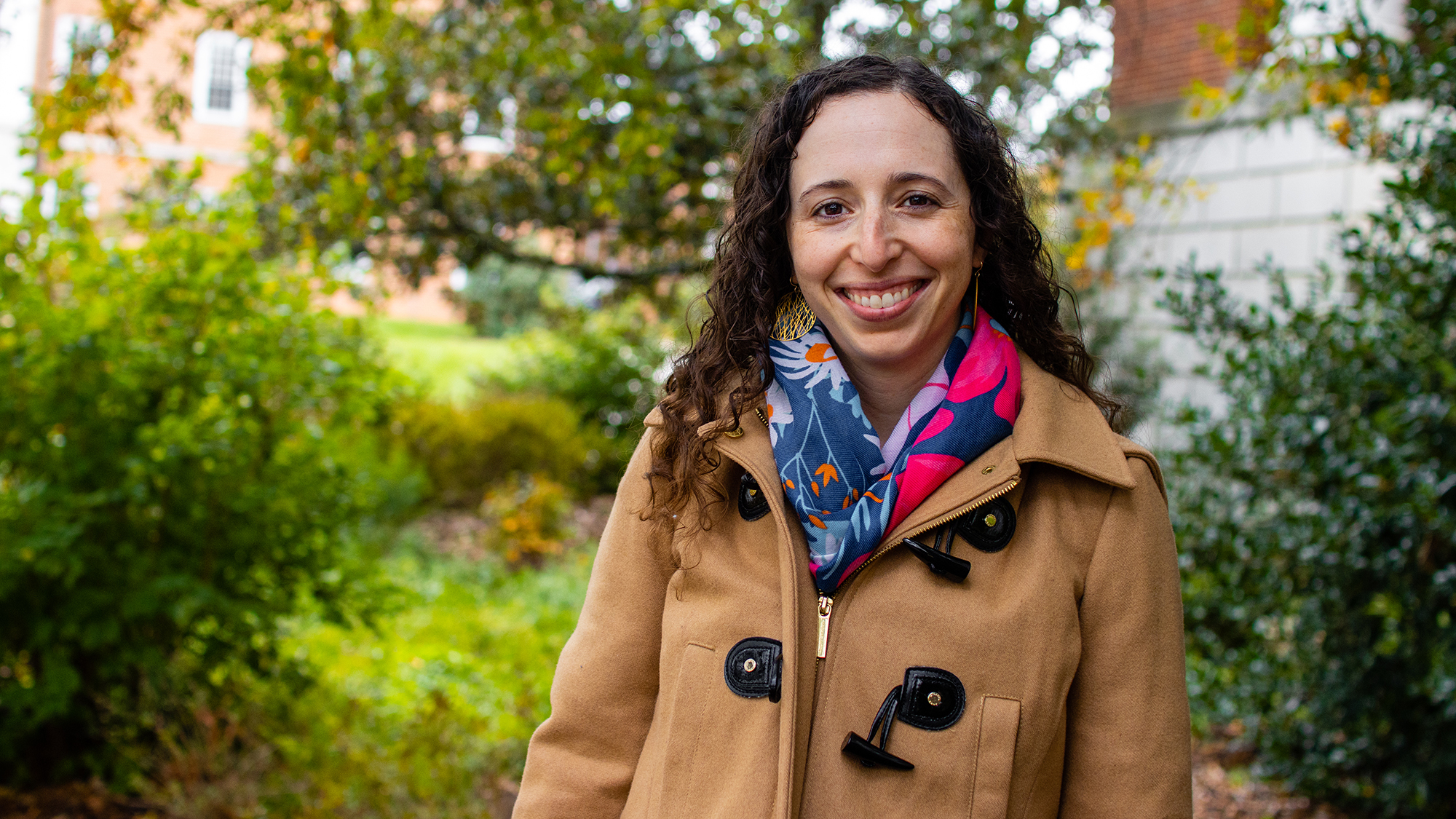University of Maryland assistant professor Rachel Rosenberg Goldstein received the Health Information Outreach Award by the Network of the National Library of Medicine for her “Healthy Garden, Healthy You” project last month.
The award included a $20,000 grant to support her project, which combines health information with gardening tools for residents in Baltimore City and Prince George’s County. The outreach award is given to projects that work to increase health information literacy and accessibility.
“Mental health and food security are two of the biggest challenges in public health right now,” said Goldstein, a professor in the Maryland Institute for Applied Environmental Health . “This grant is allowing me to actually bring that information out to communities that could benefit from it.”
As a part of her “Healthy Garden, Healthy You” project, Goldstein researched the effects of gardening on mental health and food insecurity. Gardens help with issues of food insecurity by making fresh vegetables more accessible, while the act of gardening itself can help reduce anxiety and lead to better moods.
Using the grant money, Goldstein and her team will create virtual toolkits to share information on the health benefits of gardening. The toolkits will have fact sheets for community members to understand how gardening can help them better their mental health and manage stress.
[With pandemic exposing health disparities, Maryland launches health equity commission]
Jon Traunfeld, the program director of the Home and Garden Information Center at this university, has worked closely with Goldstein on this project and is taking the lead on separate gardening starter kits that will be given to community members. The kits will include potting mix, fertilizer and instructions on how to start the garden with seeds for green vegetables
The project should have all of the garden kits distributed by April, Traunfeld said, and they plan to collect data afterward by conducting a follow-up survey after six months to determine how successful people were with maintaining their gardens.
Traunfeld said they would double down on reaching people in underrepresented communities who aren’t participating in the programs yet or using their resources by connecting with University of Maryland Extension colleagues.
“We can hopefully make some inroads there and help people start gardens and improve their health and their family’s health,” Traunfeld said.
Traunfeld added it would be important for people who use the starter kits to develop interests in bigger types of gardens, such as in-ground gardens or community plots, and to understand the connection to nature and plants.
“That’s really important today, with so much uncertainty and instability in so many areas of people’s lives,” he said.
As a part of the grant, they will also be leading an informational webinar for the project. The webinar will feature topics on how to start gardening and the important connections between mental and physical health and nature.
Goldstein’s “Healthy Garden, Healthy You” project is a part of her Water Quality, Outreach and Wellness Lab that studies the quality of water with bacteria in it. The WOW lab has other projects, such as Reducing Anxiety with Nature and Gardening.
RANG was a project that Goldstein led last summer, where a survey was shared across the country. Over a thousand people responded to the survey to gauge anxiety levels, frequency of gardening and participation in other outdoor activities. She said that the findings showed a correlation between time spent and experiences in gardens and anxiety levels. She found that higher rates of time and experience correlated with lower levels of anxiety.
Goldstein said her work has grown past looking only at what makes people sick. She looks at the mental health challenges that the pandemic presented and how she can bring information about the mental health benefits of gardening to people.
[UMD public health professor wins award for excellence in environmental leadership]
Marcus Jerome Williams, a contributor to Goldstein’s RANG project and a horticulture educator for this university in Baltimore City, said Goldstein’s work fills a necessary gap in the city. Many people use rain barrels in Baltimore City, Williams said, but can’t measure the water quality or don’t get enough water to use in their urban farms and community gardens.
Williams said that showing people how to maintain urban gardens and use rainwater is a need to be filled.
The work that Goldstein does is especially necessary for those in urban areas with food insecurities, Williams said.
“It’s also necessary because our kids don’t know where their fruits and vegetables and other produce come from, so being able to see firsthand where it comes from is a necessary point of agricultural literacy,” he said.



